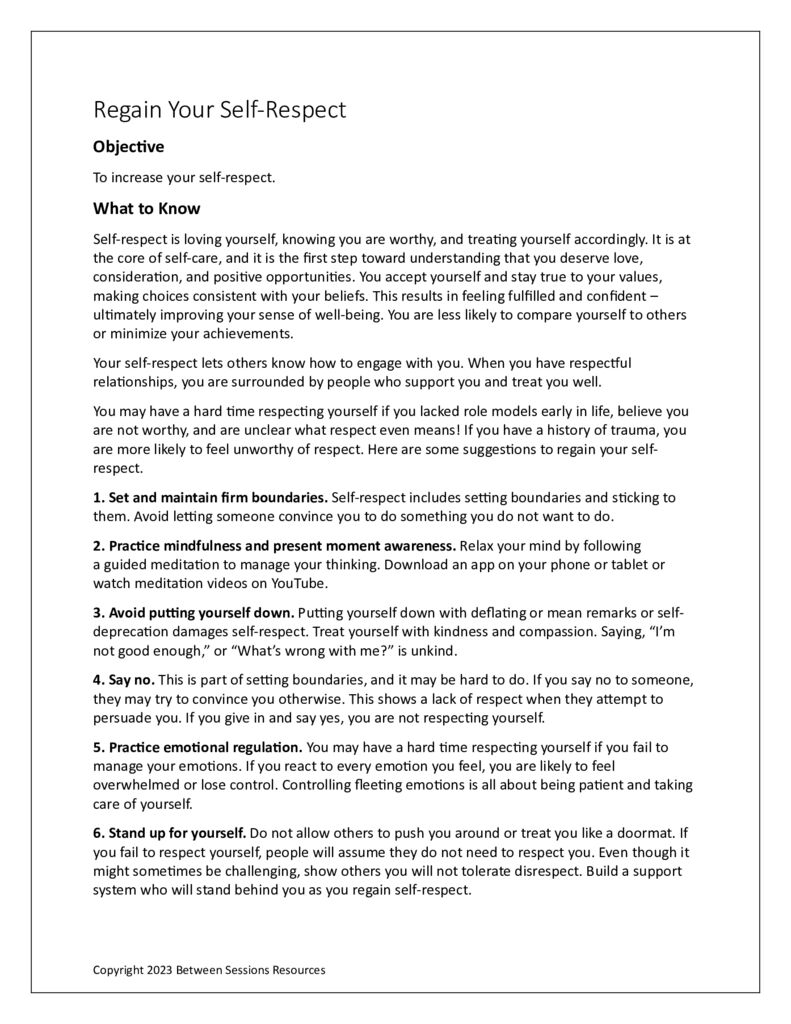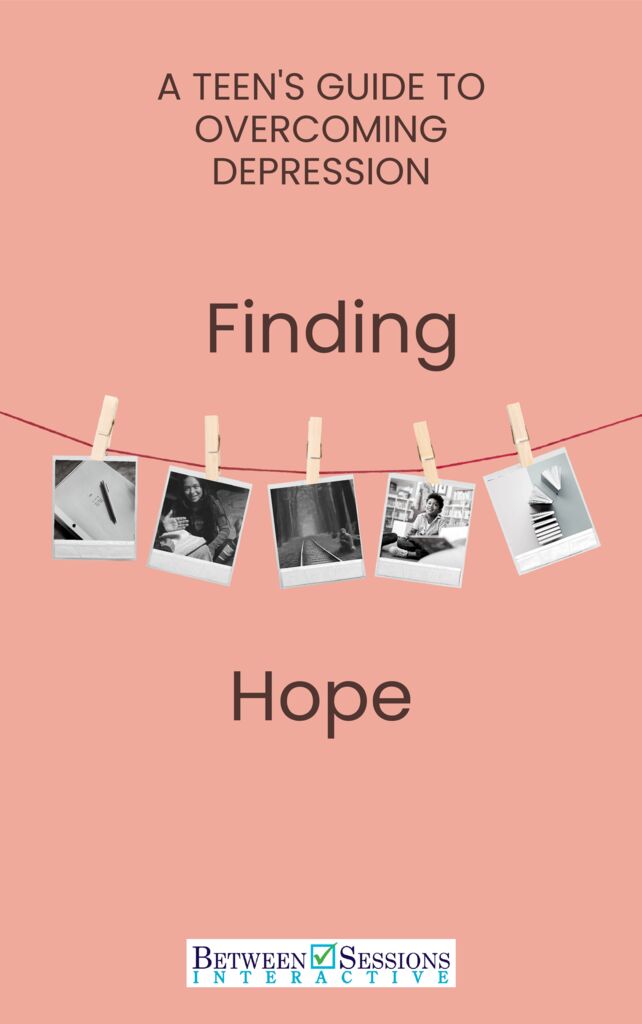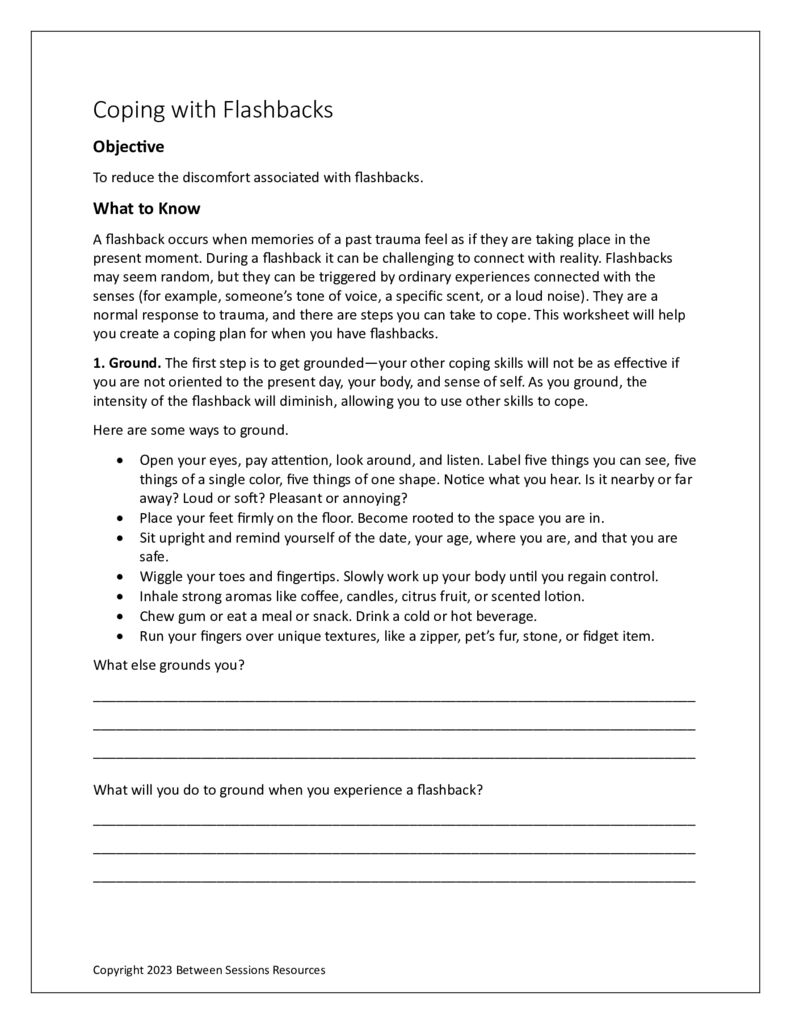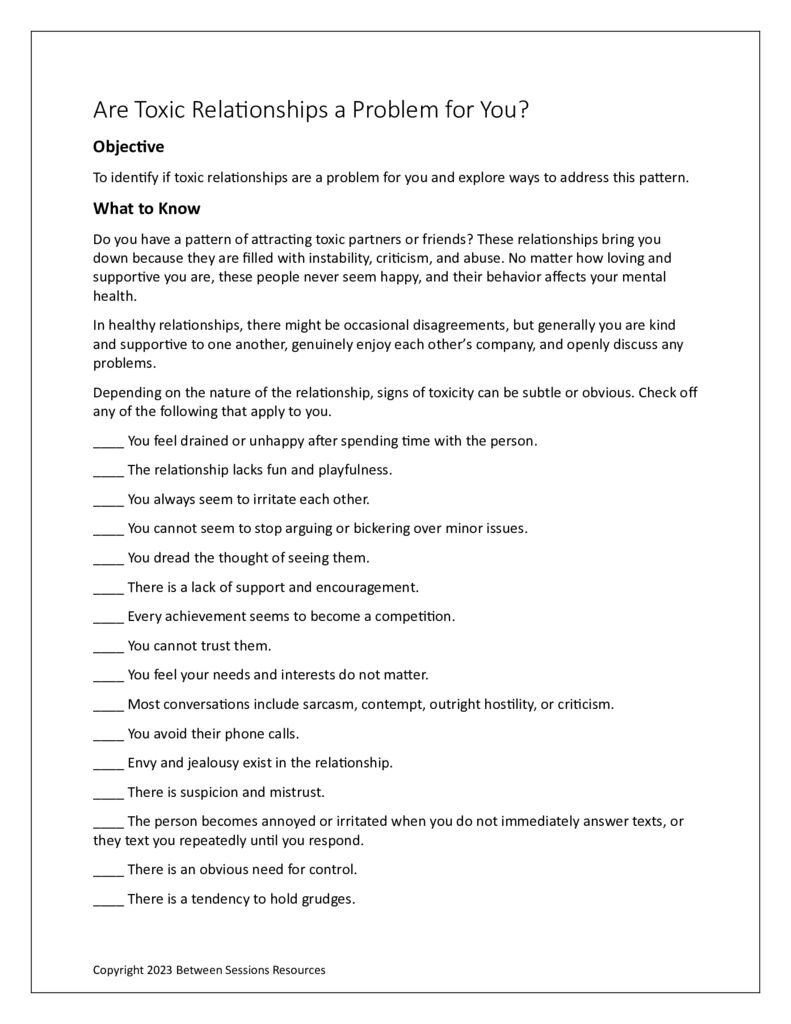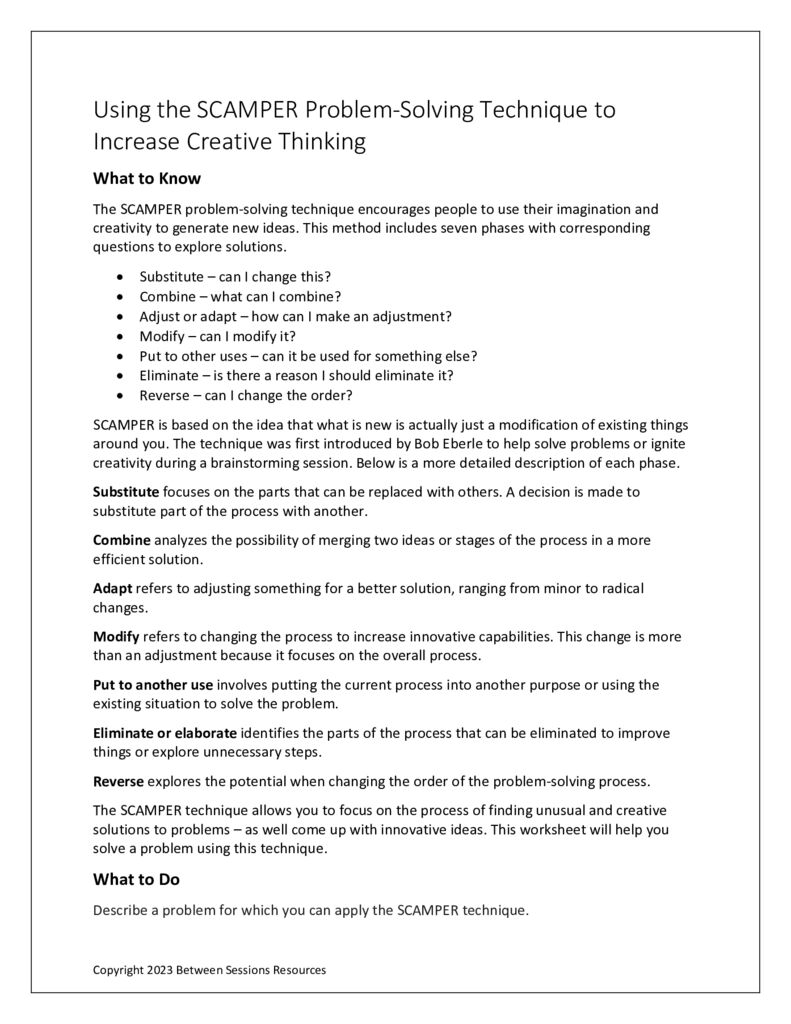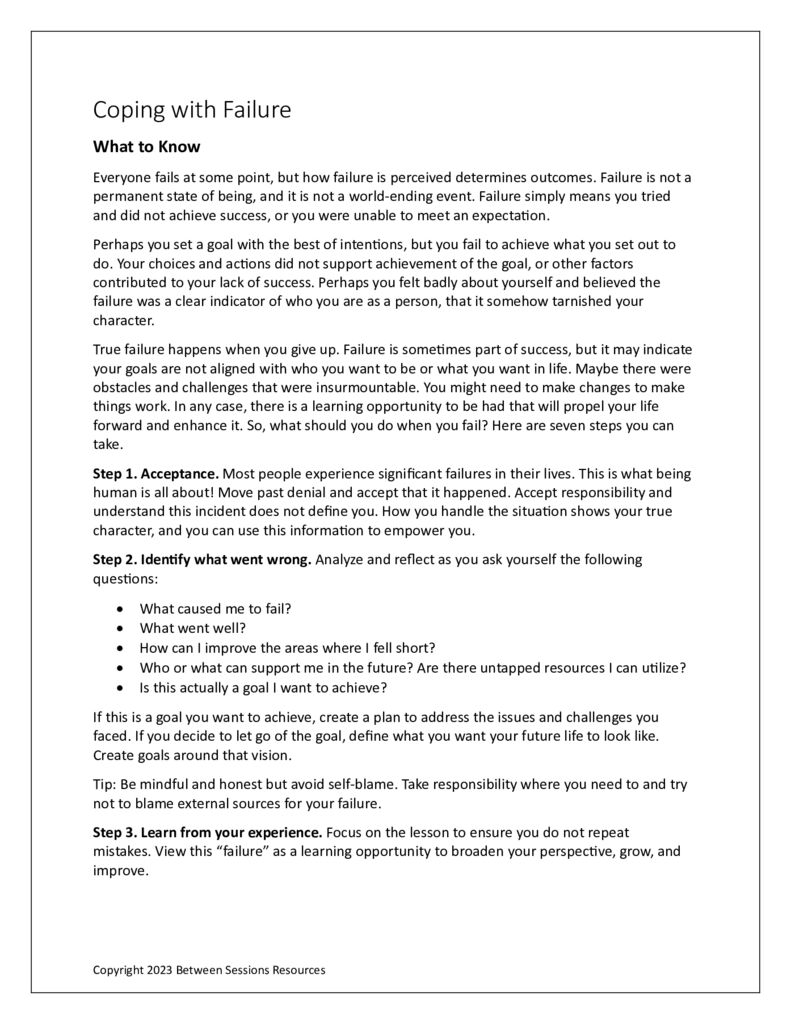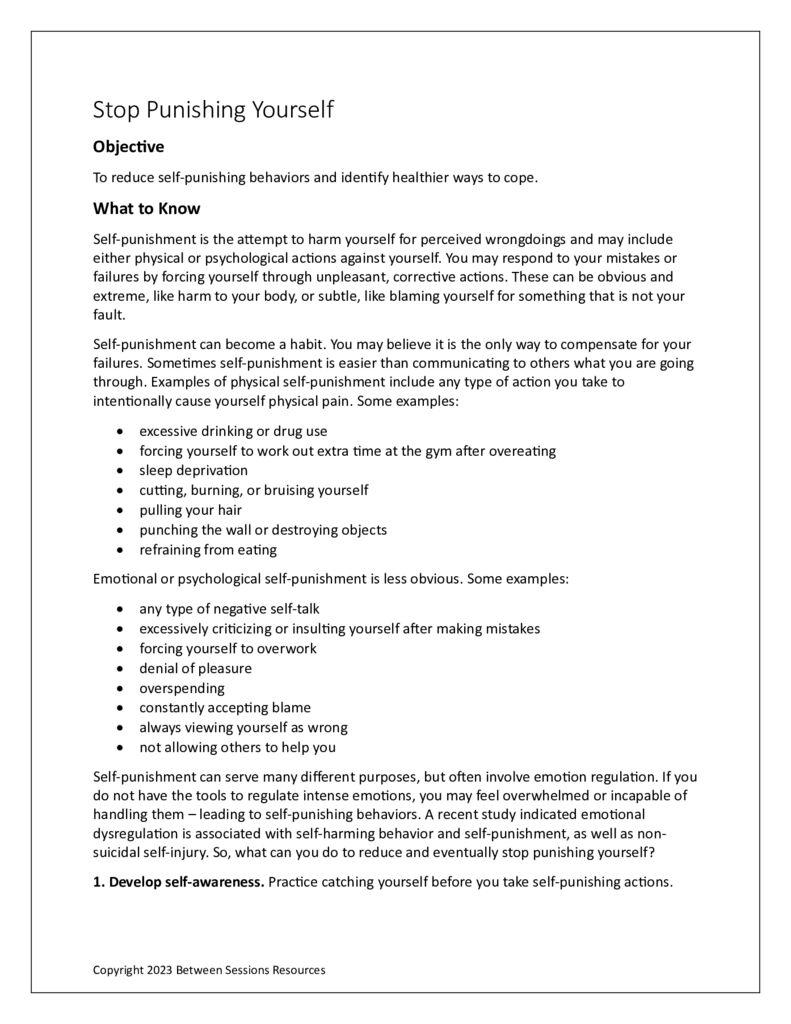Studies tell us that when professionals prescribe therapeutic homework, clients report significantly better outcomes. Our worksheets are derived from evidence-based therapies, and they are designed by experienced professionals. Use the navigation links on the left of this page to view tools in a specific category. Or use the search box at the top of this page to find the exact tool you are looking for.
To modify the tools, click the ‘Send to Client’ button by each tool to open the Psychology Forms Filler. You can then edit the tool as you see fit and either print it out or send it to a client to be filled out online. Click here for a tutorial on using the Psychology Forms Filler.
If you can’t find what you are looking for on this site, please let us know by
clicking here and our team of writers, graphic artists, and therapists will custom-design it for you.
This worksheet is designed for caretakers of older adults who are struggling with a loss. It details warning signs that might signal that extra attention is needed and recommends specific steps that might help with different kinds of problems. (0223, elderly, loss, gerontology)
This worksheet is designed to help those who feel that they are unworthy of the love and respect of others. It covers 19 strategies for a person to regain his or her self-respect from learning to say ‘no’ to developing a sense of integrity. The worksheet includes a simple “test” for people to determine if they need to work on their sense of self-respect. (0223, self-image, depression)
This workbook contains 12 activities to help teens understand their depression and develop skills to find hope, manage stress, reach out to others, and more. (0223, depression)
This 196-page workbook provides clients with 41 therapeutic homework assignments to help them navigate and recover from divorce. In completing these assignments, clients identify what to do immediately following a separation, manage their thoughts and emotions, focus on self-care, and eventually move forward with their lives. (0123, divorce, separation, marriage, couples counseling, marital therapy)
This worksheet is designed to give people a variety of techniques to deal with flashbacks, often associated with PTSD. After reviewing the techniques, readers are asked to write down a plan to handle flashbacks. (0123, PTSD, Trauma)
This worksheet is intended to help people determine if toxic relationships are a problem for them and explore ways to address this pattern. A scorable checklist is included to rate the toxicity of the relationship from moderate to severe. Then suggestions are given to help people break a pattern of being in toxic relationships. Readers are asked to think about how people from the past may have set the stage for toxic relationships. (marriage counseling, family therapy, relationships)
The SCAMPER problem-solving technique encourages people to use their imagination and creativity to generate new ideas. The method includes 7 phases of exploring solutions. The worksheet takes the user through the 7 steps with in-depth questions. (0123, problem-solving)
This worksheet is designed to help people with depression appreciate small changes in their attitude. It asks them to look back at the past week and record three things they felt confident about, three things they coped with, three things that made them happy, and so on. (0123, depression)
This worksheet is designed to help people cope with failure using a 7-step process. (0123, depression, work issues, self-esteem, self-efficacy)
This worksheet talks about the various kind of self-punishment including physical and emotional self-punishment. Physical self-punishment includes cutting and burning, to excessive burning, sleep deprivation, and more. Psychological self-punishment can range from not letting others help you when you need it to forcing yourself to overwork. The worksheet offers six strategies to overcome self-punishment including a chart to record healthy coping behaviors. (0122, self-harm, self-injury, negative self-image)


